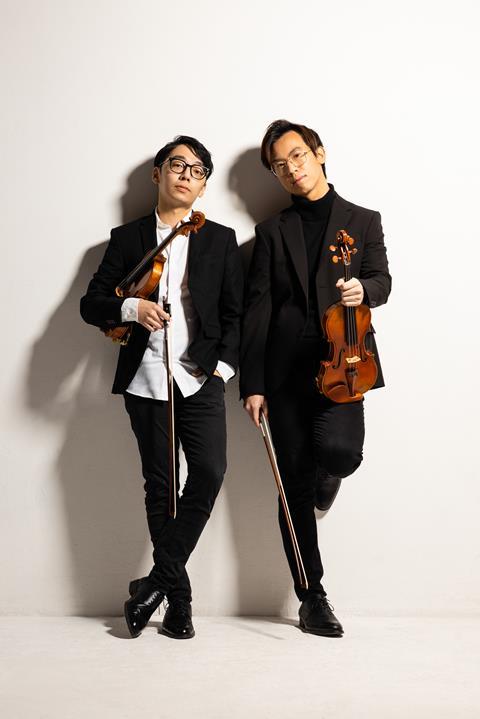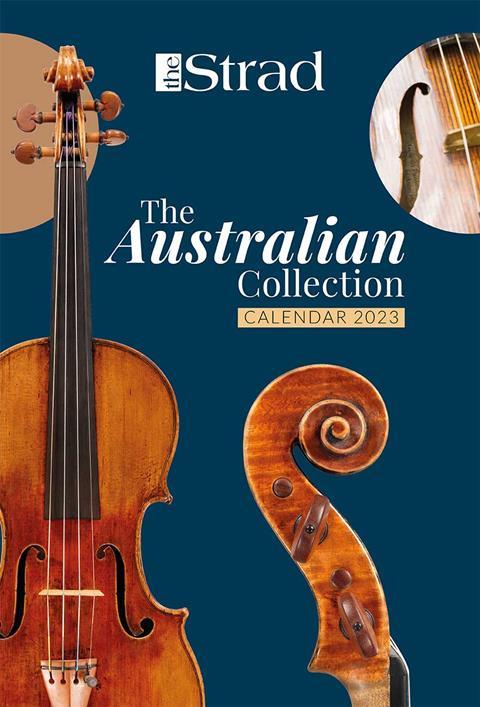In addition to attaining goals, it’s important for musicians to think about ‘non goals’ to avoid burnout and stress, as outlined by the violinist

Discover more Featured Stories like this in The Strad Playing Hub.
Burnout is something I’ve thought a lot about. We’ve burnt out many times because we do everything ourselves with our team, it’s all in-house. People strive for goals, for example, what’s the number of views you want to get, the number of subscribers you want to reach?
However, we’ve been thinking about ‘non goals’. What don’t we want? Let’s say you want a million views on YouTube. At what cost? Are you willing to give that up? If you want to do 1000 concerts: at what cost?
I don’t think people think about that enough. I honestly think people are so fixated on goals, which is not a bad thing, but I think there’s so much content out there, people think ‘this is what you want, this is the life you want, you’re going to be a soloist, you’ve got to do this’. We’re so fixated that we’ve turned a blind eye at the cost of attaining that.
The costs are burnout, health issues, damaged relationships, many things. So I think it’s really important that you have to think about your ‘non goals’. And we’re by no means perfect. Burnout still happens sometimes. But remember to think about the things that you don’t want to happen again, like being under constant stress. How do you make sure you’re not under constant stress? You can’t be never stressed because that’s unrealistic - maybe a little bit stressed every now and then. But being constantly stressed is just not a good thing because it makes it not fun anymore. What’s the point of getting a million views when the trade is you’re sick, or you create bad relationships, or you’re unable to do anything else, like spend time with family? I think we always forget. I do think we have a culture of ‘go, go go!’ We just have to take a step back from that.
Listen: The Strad Podcast #81: TwoSet Violin’s Brett Yang on the ‘Empress Caterina’ Stradivari
Read: ‘A dream come true’: TwoSet Violin’s ‘4 Mil Subs’ Concert
Being constantly stressed is just not a good thing because it makes it not fun anymore
Everyone is chasing success. Well, what is success? It’s different for every person. It doesn’t help that there are a lot of fake expectations on social media. And I can tell you now, it never ends. Let’s say your goal today was to get 10,000 subscribers. You get that, then you want 20,000, then 30,000 and it never ends. It never ends. Maybe it’s monetary - $100, $500, $1000. It’s a really important to not be baited by something, thinking that’s going to fulfil you. And then you shift your goal based on that.
You need to know what you want and you also need to know what your limits are. A typical example is of a pop star who has 50 Lamborghinis. It makes you think that’s how you view success. Maybe you want 50 Lamborghinis. But do you also want to give up 50 years of your life working? Maybe you just want to drive a fast car – perhaps you could just lease one? Or are you attracted to the idea that people can look up to you because you want to show off and flex to others how successful you are? In that case, maybe that’s a question for yourself – are there other ways to fulfil that desire than going for a Lamborghini, because again - at what cost? Do you value friendship? If you keep doing it, maybe people won’t like you because it’s too in your face. We generally look around to look at what’s cool. We don’t think individually enough.
Interview by Davina Shum
Read: ‘It’s been four years since we’ve been on the road’: Brett Yang on the TwoSet World Tour
Read: Brett Yang of TwoSet Violin to take a break
Read more Featured Stories like this in The Strad Playing Hub
The number one source for playing and teaching books, guides, CDs, calendars and back issues of the magazine.
In The Best of Technique you’ll discover the top playing tips of the world’s leading string players and teachers. It’s packed full of exercises for students, plus examples from the standard repertoire to show you how to integrate the technique into your playing.
The Strad’s Masterclass series brings together the finest string players with some of the greatest string works ever written. Always one of our most popular sections, Masterclass has been an invaluable aid to aspiring soloists, chamber musicians and string teachers since the 1990s.
This year’s calendar celebrates the top instruments played by members of the Australian Chamber Orchestra, Melbourne Symphony, Australian String Quartet and some of the country’s greatest soloists.
Topics
Best of 2023: The Strad Playing Hub
- 1
- 2
- 3
- 4
- 5
 Currently reading
Currently reading‘What don’t you want?’: violinist Brett Yang on avoiding burnout and stress
- 6
- 7
- 8
- 9
- 10
- 11























































No comments yet